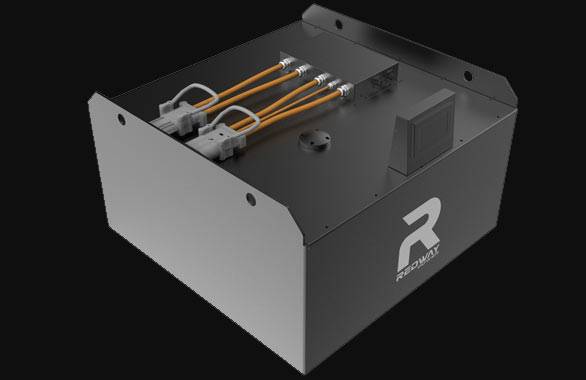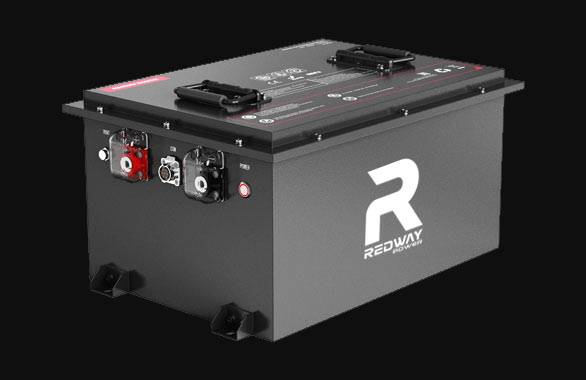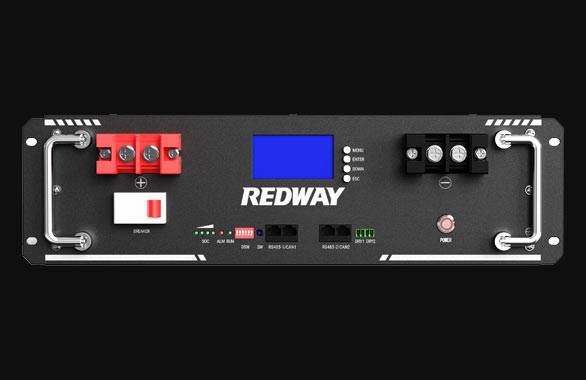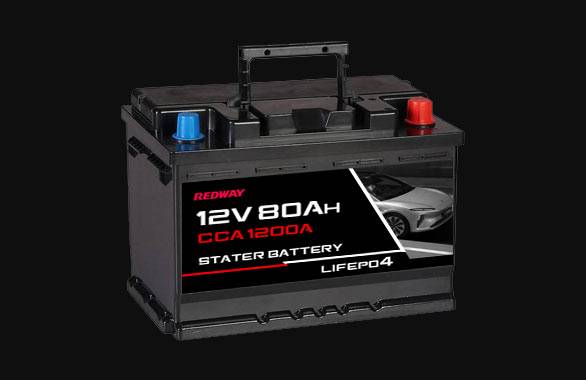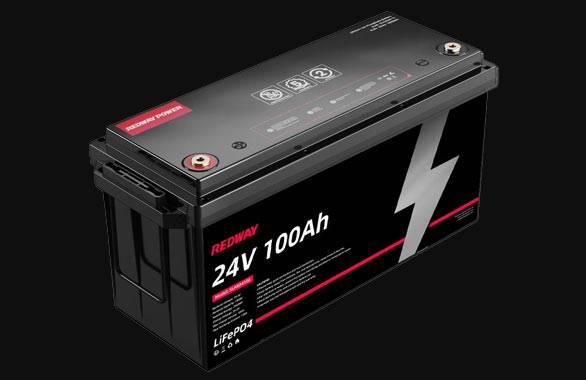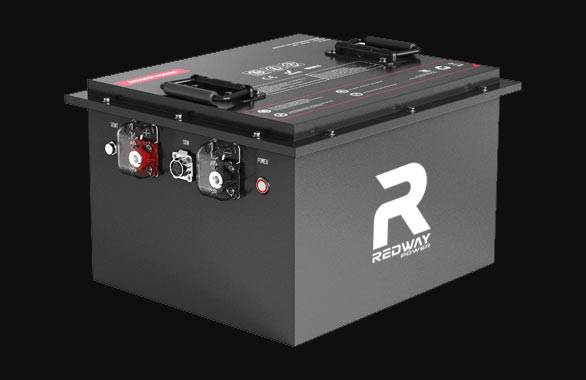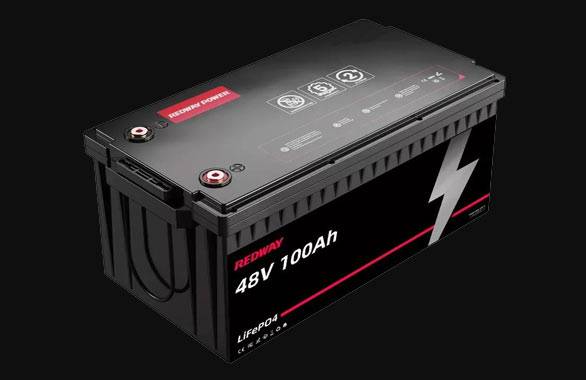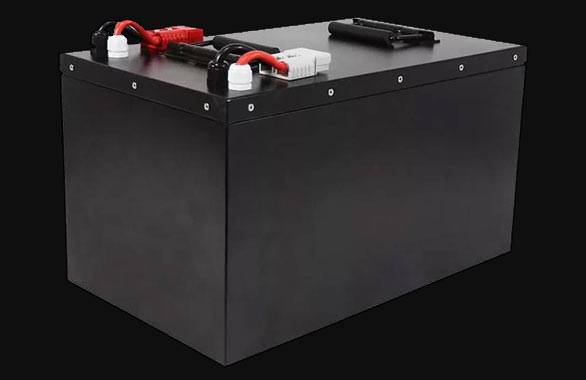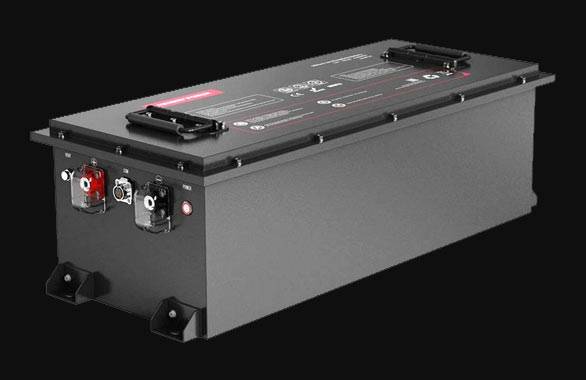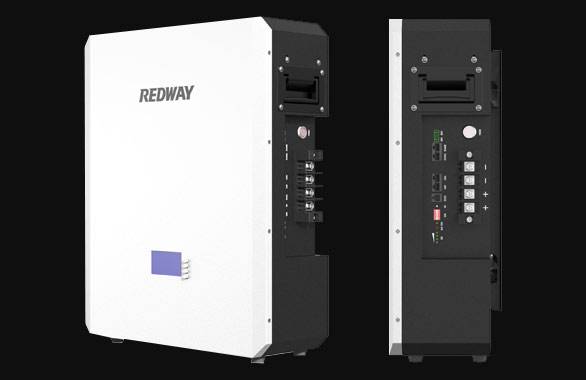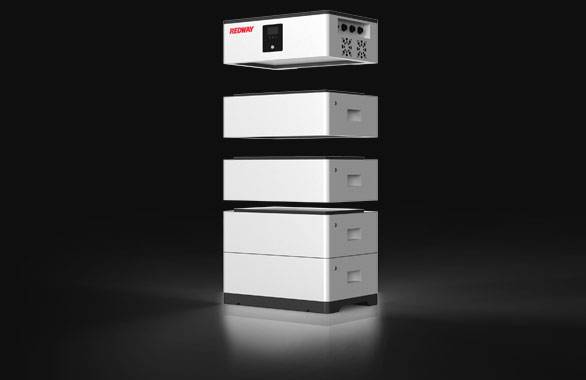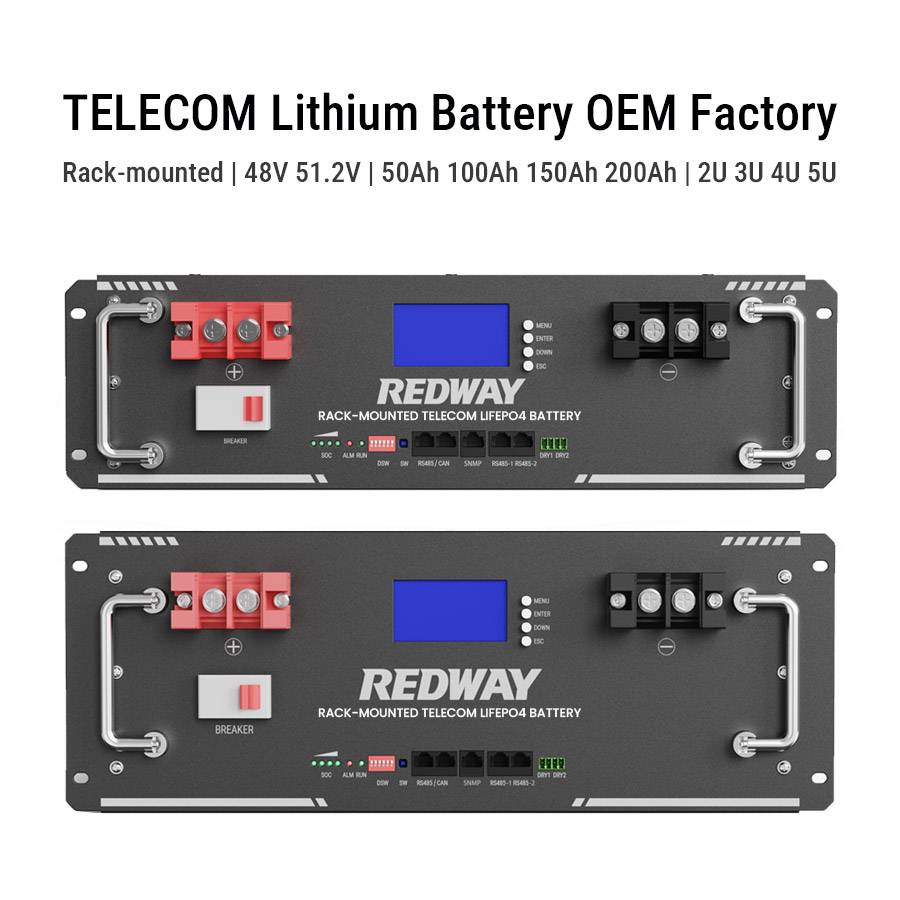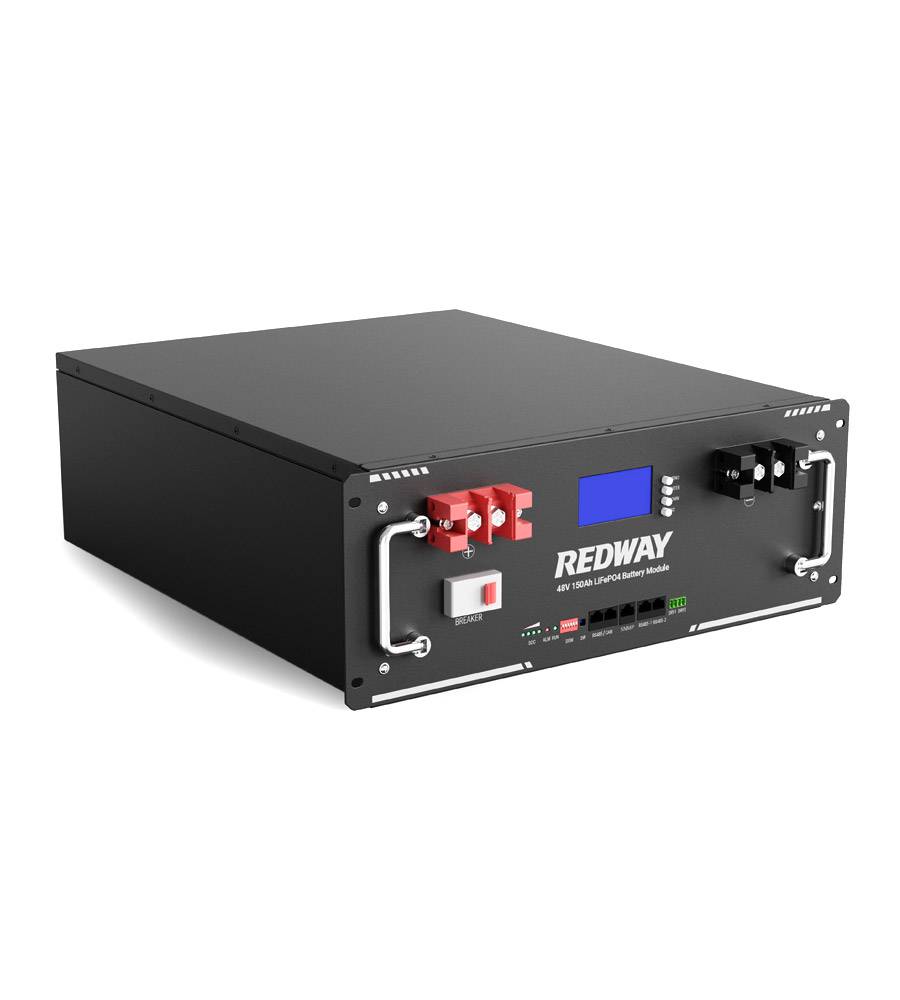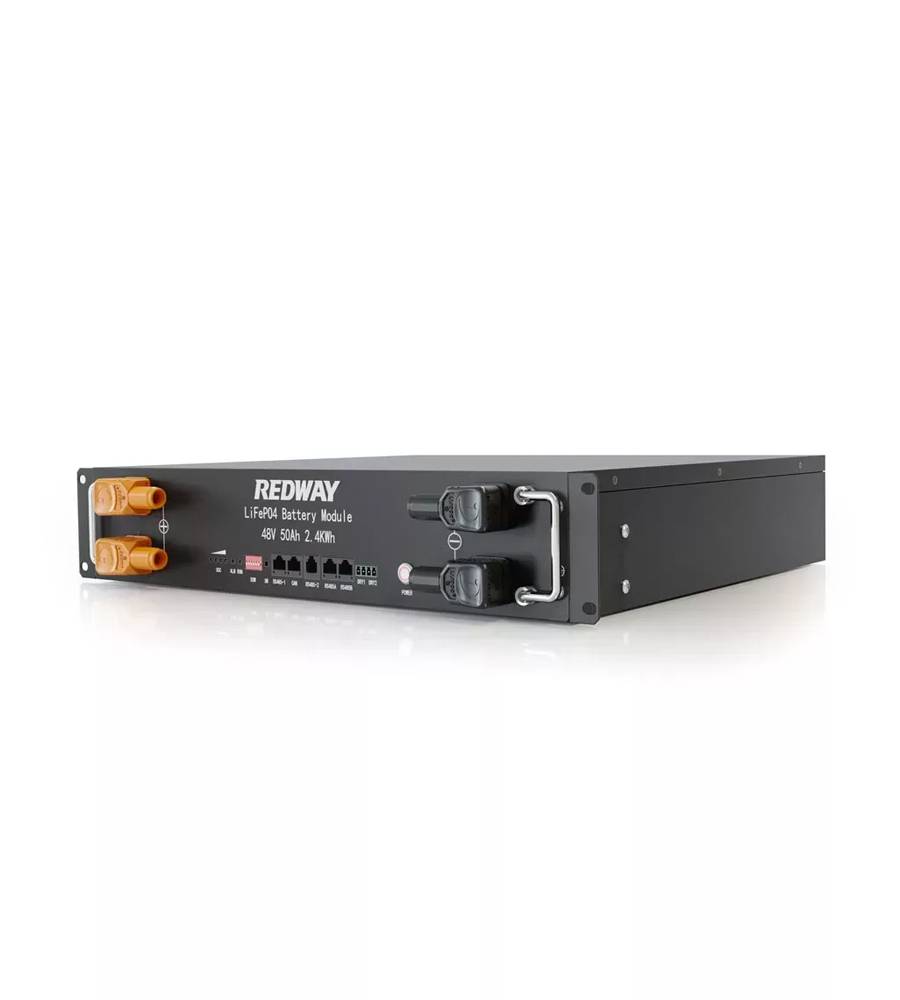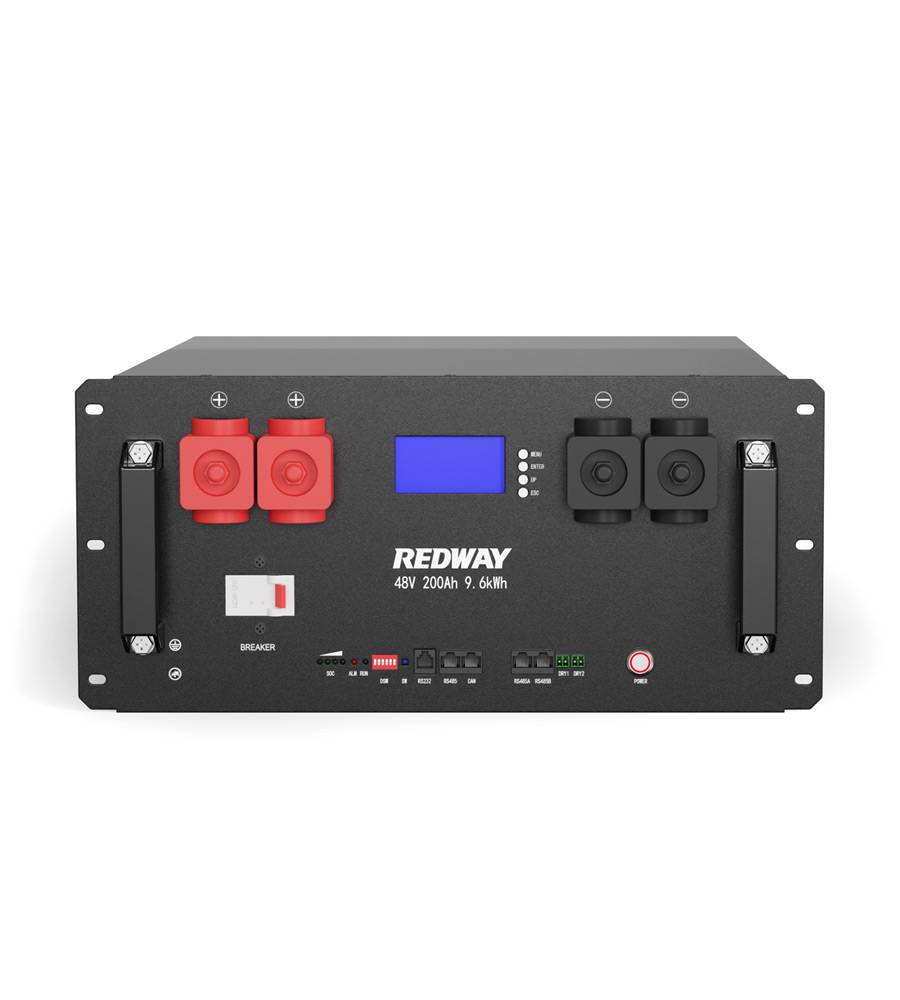- Forklift Lithium Battery
- Golf Cart Lithium Battery
- Rack-mounted Lithium Battery
51.2V 100Ah Rackmount LiFePO4 Battery
8000 times (80% DOD 0.5C)
Optional SNMP for TELECOM - Car Starter Battery
- 12V LiFePO4 Battery
12V 150Ah Lithium RV Battery
Bluetooth App | Self-heating
LiFePO4 | Group 31
UL 1642 | IEC 62619 - 24V LiFePO4 Battery
- 36V LiFePO4 Battery
- 48V LiFePO4 Battery
- 60V LiFePO4 Battery
60V 100Ah Lithium Battery (AGV, AMR, LGV)
Peak Discharge Current 400A
500 x 298 x 349 mm - 72V~96V LiFePO4 Battery
72V 100Ah Lithium Golf Cart Battery
Peak Discharge Current 315A (10S)
740 × 320 × 246 mm - Wall-mounted Lithium Battery
51.2V 100Ah 5kWh
Wall-mounted Battery532 x 425 x 170 mm / LiFePO4
>8000 Cycles (80% DOD 0.5C)
RS485 / CAN-bus
for Solar Home ESS - Home-ESS All-in-One
51.2V 32kWh
All-in-On HESS SystemPowerAll
51.2V / LiFePO4
>8000 Cycles (80% DOD 0.5C)
RS485 / CAN-bus / WiFi
All-in-One for Home ESS
We accept OEM, ODM and SKD orders
Lithium LiFePO4 Server Telecom Batteries OEM Factory
Redway Power
Telecom Lithium Batteries, Rack-mounted Lithium Battery, One-Stop Solution for Telecom Base Stations
Redway Power is a forefront manufacturer of Telecom Lithium Batteries, Rack-mounted LiFePO4 Battery specifically engineered for telecommunication infrastructure. These rechargeable lithium-ion batteries play a critical role in providing reliable backup power to ensure uninterrupted communication services during power disruptions.
Redway's Telecom Lithium Batteries stand out with their high energy density, extended lifespan, and rapid charging capabilities, offering superior performance compared to traditional batteries. As a leader in the field, Redway Power's commitment to innovation ensures that Telecom Lithium Batteries contribute to the seamless operation and continuity of telecommunication networks, emphasizing efficiency, reliability, and advanced technology in supporting critical communication infrastructure.
Our Telecom Lithium Battery is widely used.
Our Rack-Mounted LiFePO4 Battery is widely adopted in the Asian telecom industry due to its high efficiency, safety, and long lifespan, making it an ideal energy storage solution for telecom base stations and data centers. Compared to traditional lead-acid batteries, our LiFePO4 battery offers a much longer cycle life (>8000 cycles @80%DOD 0.5C), higher energy density, and faster charging and discharging capabilities, significantly reducing maintenance costs and improving operational efficiency.
In Southeast Asia’s high-temperature and high-humidity environments, our battery ensures stable operation with its advanced temperature management system and robust rack-mounted design. It is also compatible with various telecom power architectures and supports remote monitoring with an intelligent BMS, enabling real-time status tracking and easy maintenance.
Currently, our Rack-Mounted LiFePO4 Lithium Battery has been successfully deployed in telecom base stations across multiple Asian countries, helping customers reduce operational costs and enhance power reliability. We are committed to providing customized solutions tailored to the specific needs of different regions.
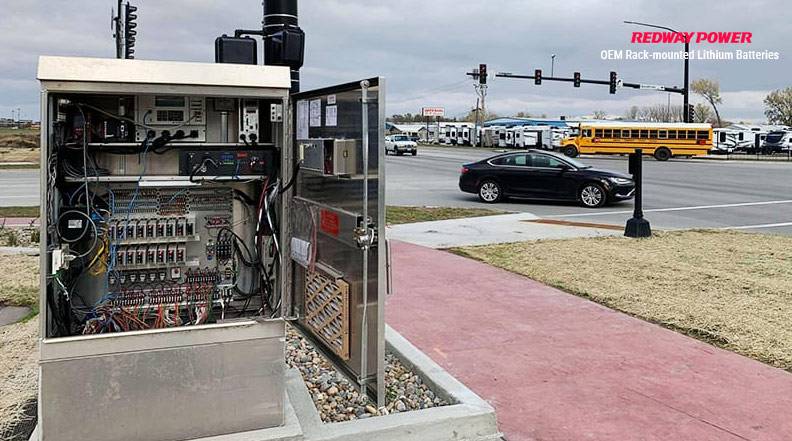
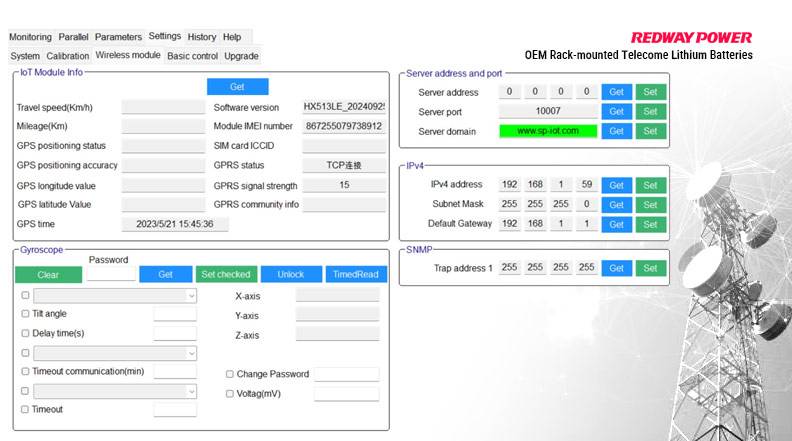
4G, GPS, and SNMP Remote Monitoring for Telecom Rack-Mounted LiFePO4 Battery
Our Rack-Mounted LiFePO4 Battery for telecom supports 4G, GPS, and SNMP Monitoring, ensuring seamless remote management and real-time data tracking.
With 4G connectivity, operators can monitor battery status remotely, receiving instant alerts on voltage, temperature, and performance. The GPS function helps track battery locations, enhancing security and deployment efficiency. SNMP (Simple Network Management Protocol) enables seamless integration with telecom network management systems, allowing centralized monitoring and automated alerts.
This advanced monitoring system helps telecom operators optimize battery performance, reduce maintenance costs, and ensure uninterrupted power supply for base stations.
OEM Telecom Rack-mounted LiFePO4 Lithium Battery
We provide OEM/ODM services for rack-mounted LiFePO4 lithium batteries, widely used in the telecom industry. Our batteries feature high energy density, over 8,000 cycle life, and integrated smart BMS, ensuring excellent performance. We offer customization for battery capacity, voltage, and communication protocols (4G, RS485, CAN, SNMP) to meet specific customer needs.
Our production utilizes advanced automated equipment, covering cell matching, BMS assembly, module integration, and full-system testing, ensuring high product quality and consistency. Additionally, we have implemented a Manufacturing Execution System (MES) to enable data traceability, real-time monitoring, and strict quality control throughout the production process.
We are ISO9001 Certified and adhere to standardized testing procedures, including charge-discharge testing, high-low temperature testing, and aging tests. Our batteries comply with UL1642, IEC 62619, UN38.3, and MSDS global safety certifications, providing high-quality, safe, and reliable power solutions for the telecom industry while ensuring global market compliance.
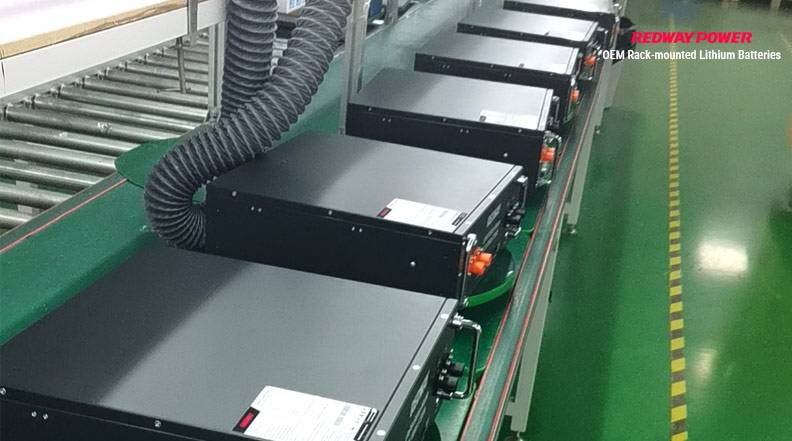
Best Lithium Telecom Batteries Wholesaler 2025
Redway Power is the Best Lithium Telecom Batteries Wholesaler 2025, delivering premium LiFePO4 batteries engineered for uninterrupted power, fast charging, and long-term reliability. Our wholesale solutions enhance network efficiency, reduce maintenance costs, and ensure stable backup power for telecom infrastructure.
Choose Redway Power for high-quality, innovative lithium-ion batteries designed for telecom towers, SNMP, 4G networks, GPS, RS485, CAN-bus and communication systems. Contact us Now!
48V 100Ah 4.8kWh
Telecom / SNMP
440 x 440 x 136 mm / 3U
48V 150Ah 7.2kWh
Telecom / SNMP
550 x 440 x 133 mm / 4U
48V 50Ah 2.4kWh
Telecom / SNMP
440 x 440 x 136 mm / 3U
48V 50Ah 2.4kWh
Telecom / SNMP
410 x 440 x 88 mm / 2U
48V 200Ah 9.6kWh
Telecom / SNMP
570 x 440 x 222 mm / 5U
51.2V 100Ah 5.12kWh
Telecom / SNMP
440 x 440 x 136 mm / 3U
51.2V 50Ah 2.4kWh
Telecom / SNMP
440 x 440 x 136 mm / 3U
51.2V 50Ah 2.5kWh
Telecom / SNMP
410 x 440 x 88 mm / 2U
Comprehensive Guide to Redway Lithium Telecom Batteries
When selecting high-performance LiFePO4 telecom batteries, it’s crucial to choose a trusted manufacturer that offers reliable, efficient, and long-lasting solutions. Redway Power provides advanced lithium telecom batteries designed for exceptional energy efficiency, fast charging, and extended cycle life, ensuring uninterrupted power for telecom infrastructure.
Upgrade to Lithium: A Smart Choice
Redway Power’s LiFePO4 telecom batteries are the ideal replacement for traditional lead-acid batteries, offering higher power output, lower maintenance, and eco-friendly operation. Our batteries provide consistent backup power, lightweight design, and deep-cycle capabilities, making them the perfect solution for telecom towers and communication networks.
Designed for Leading Telecom Applications
Redway Power’s lithium telecom batteries are specifically engineered for seamless integration with:
✅ Telecom Towers & Telecom Base Stations
✅ 4G Network Infrastructure
✅ Remote Telecom Sites
✅ Wireless Communication Systems
✅ Backup Power for Data Centers
✅ Emergency Communication Networks
As a manufacturer and wholesaler, Redway Power specializes in providing OEM-customized battery packs built with cutting-edge lithium iron phosphate (LiFePO4) technology, ensuring exceptional durability and performance for telecom applications.
Why Choose Redway Power?
✔ MES – We utilize MES (Manufacturing Execution System) to ensure high-precision production, real-time monitoring, and full traceability in the manufacturing of telecom lithium batteries, guaranteeing consistent quality and reliability.
✔ Reliable Performance – Ensures uninterrupted power supply for critical telecom operations
✔ Fast Charging – Reduces downtime and improves network efficiency
✔ Longer Cycle Life – Outlasts lead-acid batteries by years
✔ Maintenance-Free – No water refilling or acid spills required
✔ Eco-Friendly – Zero emissions for a greener and sustainable telecom network
Upgrade your telecom infrastructure with Redway Lithium Telecom Batteries for enhanced reliability, extended lifespan, and superior efficiency.
Ensure uninterrupted connectivity with Redway Power – Contact us today!
Yes, telecom batteries and cell phone tower batteries are essentially the same. Both serve the telecommunications industry by providing backup power to ensure uninterrupted service for communication systems, including cell towers, base stations, and repeater stations during power outages or fluctuations.
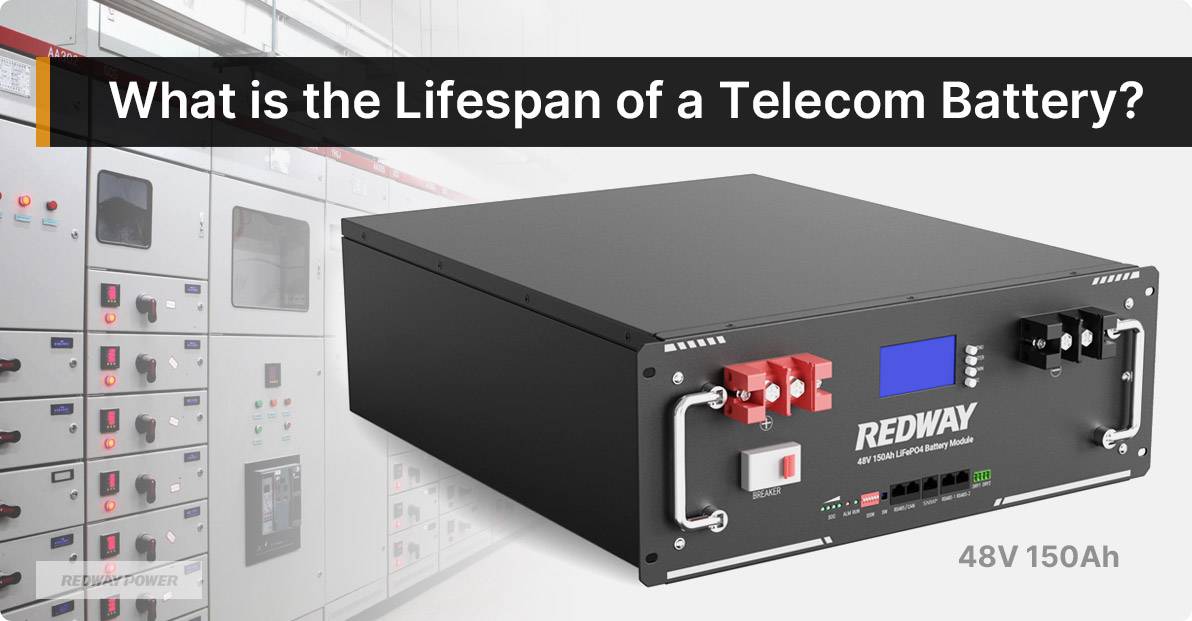
Commonly used batteries in telecom towers include lead-acid batteries, lithium-ion batteries, nickel-cadmium (Ni-Cd) batteries, and nickel-metal hydride (Ni-MH) batteries. Lead-acid batteries are traditional due to their reliability, while lithium-ion batteries are increasingly preferred for their higher energy density and lower maintenance requirements.
Telecom batteries serve several critical functions: they provide backup power during electrical outages, stabilize power supply for telecommunications equipment, and support load balancing during peak demand. These functions ensure continuous operation of communication systems, maintaining network reliability and connectivity.
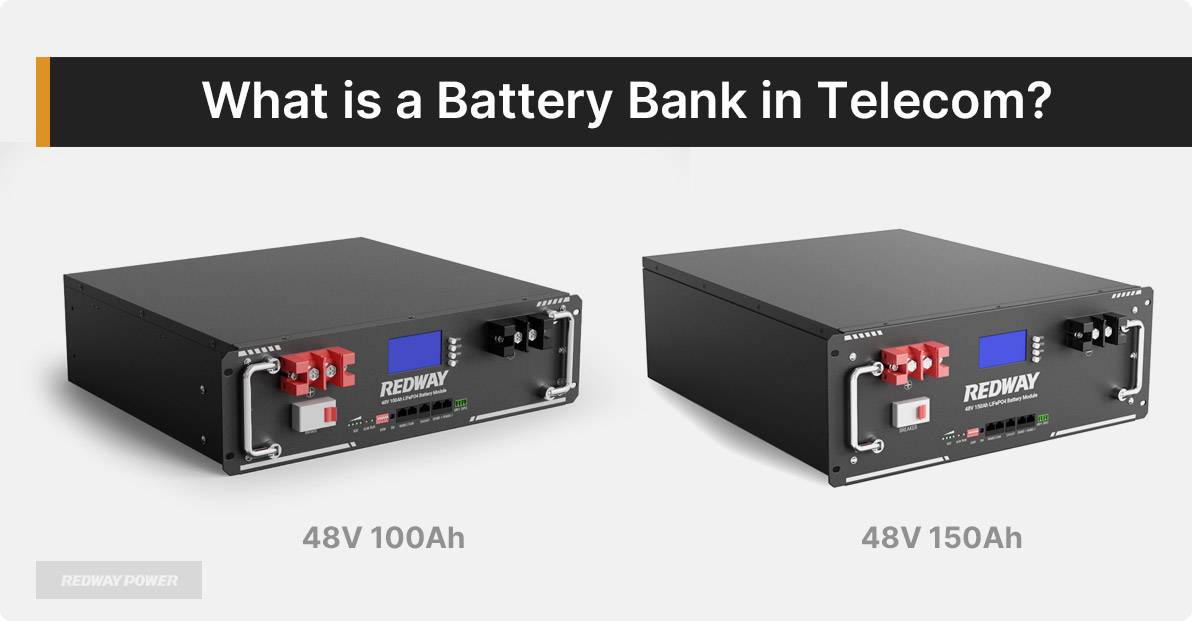
The benefits of using telecom batteries include enhanced network reliability during power outages, reduced maintenance needs (especially with lithium-ion options), longer lifespan, and improved energy efficiency. These advantages contribute to lower operational costs and ensure consistent performance of essential telecommunications infrastructure.
Yes, Redway Power’s Telecom Lithium Batteries are specifically engineered for telecommunication infrastructure, making them suitable for a wide range of applications within this sector.
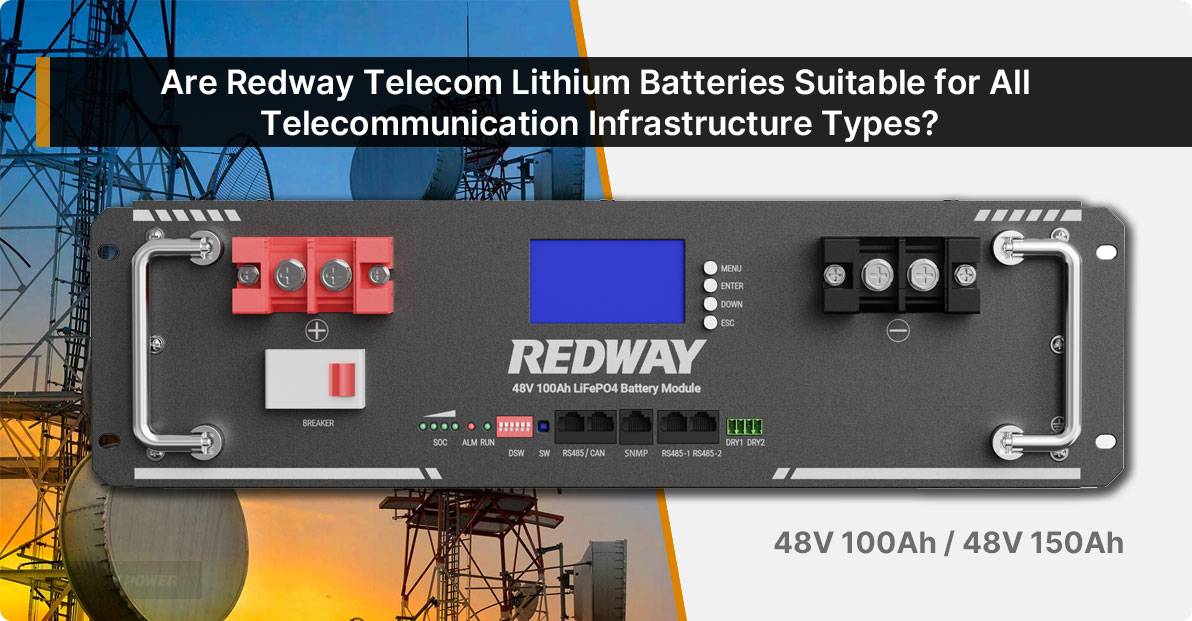
Knowledge
What Are Telecom Lithium Batteries and Why Are They Essential?
Telecom lithium batteries are high-efficiency power solutions designed for telecom infrastructure. They provide longer lifespan, higher energy density, and fast charging, ensuring reliable backup power for critical communication networks. Their ability to operate in extreme conditions makes them essential for uninterrupted telecom services.
Why Are Lithium Batteries Better Than Traditional Telecom Batteries?
Lithium batteries offer higher energy density, faster charging, and longer cycle life than traditional lead-acid batteries. They are lightweight, require less maintenance, and deliver consistent performance, making them a superior choice for telecom backup power.
How Do Telecom Lithium Batteries Work? Technology and Principles Explained
Telecom lithium batteries store energy using lithium-ion chemistry, where lithium ions move between the anode and cathode during charging and discharging. They feature built-in BMS (Battery Management System) for safety, efficiency, and longevity, making them ideal for telecom applications.
What Are the Key Specifications of Telecom Lithium Batteries?
Key specifications include voltage (48V common), capacity (50Ah-300Ah), cycle life (over 4000 cycles), and fast charging capabilities. They also feature low self-discharge, wide temperature tolerance, and integrated BMS for protection.
How Have Telecom Batteries Evolved From Lead-Acid to Lithium?
Telecom batteries have transitioned from heavy, short-lived lead-acid models to lightweight, long-lasting lithium solutions. Lithium batteries offer higher efficiency, faster recharge, and greater reliability, significantly improving telecom network performance.
What Safety Features Ensure Reliability in Telecom Lithium Batteries?
Telecom lithium batteries include overcharge protection, thermal management, and short-circuit prevention via an integrated Battery Management System (BMS). They also use non-toxic materials, reducing environmental impact and enhancing safety.
Applications
How Do Telecom Lithium Batteries Enhance Mobile Network Connectivity?
They provide stable power, ensuring uninterrupted connectivity for base stations and cell towers. Their fast recharge and high efficiency improve network uptime, even during outages.
What Powers Telecom Base Stations During Outages?
Telecom lithium batteries act as backup power, automatically supplying energy during grid failures. Their fast charging and high reliability ensure seamless communication.
How Do Telecom Lithium Batteries Ensure Reliable Power in Remote Locations?
With long cycle life, lightweight design, and solar compatibility, telecom lithium batteries offer dependable power in off-grid areas, supporting critical telecom infrastructure.
How Do Telecom Batteries Ensure Uninterrupted Communication During Emergencies?
Their rapid response, high energy output, and smart BMS enable telecom systems to function reliably during natural disasters or power failures.
How Are Telecom Lithium Batteries Customized for Unique Needs?
OEM manufacturers offer custom voltage, capacity, and BMS features tailored to meet specific telecom system requirements, optimizing performance and longevity.
How Are Telecom Lithium Batteries Revolutionizing Global Connectivity?
By offering scalable, eco-friendly, and cost-effective power solutions, lithium batteries enhance telecom network expansion, especially in rural and developing regions.
Benefits
Why Is High Energy Density Vital for Telecom Lithium Batteries?
High energy density allows longer runtimes, smaller battery sizes, and lighter installations, optimizing telecom power solutions for space-constrained environments.
How Do Telecom Lithium Batteries Reduce Total Cost of Ownership?
They offer longer lifespan, low maintenance, and energy efficiency, reducing replacement and operational costs compared to lead-acid alternatives.
How Do Telecom Lithium Batteries Enable Fast Charging to Reduce Downtime?
Their advanced chemistry supports quick charge cycles, ensuring telecom systems recover faster after power outages, minimizing network disruptions.
How Do Telecom Lithium Batteries Support Environmental Sustainability?
With longer life cycles, higher efficiency, and no toxic lead, lithium batteries reduce waste and carbon footprint, making telecom networks greener.
How Do Telecom Lithium Batteries Reduce Maintenance Efforts?
Unlike lead-acid batteries, lithium telecom batteries require no water refilling, minimal servicing, and have self-regulating BMS, lowering maintenance costs.
How to Ensure Safety and Stability in Telecom Lithium Batteries?
Using high-quality BMS, thermal protection, and certified components, telecom lithium batteries maintain stable and safe operation under various conditions.
Solutions
What Are OEM Telecom Lithium Battery Solutions and How Do They Benefit Your Network?
OEM solutions provide customized configurations, advanced BMS, and specific energy outputs, optimizing performance and longevity for telecom networks.
What Are the Key Components of Telecom Battery Systems?
Main components include lithium cells, BMS, thermal management systems, and protective enclosures for efficient and safe energy storage.
What Makes Telecom Lithium Battery Packs Compatible and High-Performing?
They feature modular designs, universal voltage compatibility, and smart communication interfaces, ensuring seamless integration with telecom infrastructure.
How Can Smart Charging Optimize Telecom Lithium Battery Efficiency?
Smart charging adjusts voltage and current based on battery health, preventing overcharging, extending lifespan, and improving energy efficiency.
How Can Retrofitting Telecom Systems with Lithium Batteries Save Costs?
Switching to lithium cuts replacement cycles, maintenance, and energy losses, significantly reducing long-term telecom power expenses.
How to Install and Maintain Telecom Lithium Battery Systems Effectively?
Installation involves correct wiring, BMS setup, and temperature monitoring. Minimal maintenance is needed, thanks to self-regulating systems.
News & Trends
Why Is Lithium the Future of Telecom Batteries?
Lithium batteries offer higher reliability, longer lifespan, and eco-friendliness, making them the preferred choice for modern telecom infrastructure.
What Are the Latest Innovations in Telecom Lithium Battery Technology?
Advances include AI-driven BMS, higher energy densities, and solid-state lithium technology, enhancing battery safety and performance.
Why Are Telecom Lithium Batteries Experiencing Surging Demand?
Growing 5G networks, off-grid telecom expansion, and sustainability initiatives drive the increasing demand for lithium telecom batteries.
What Are the Latest Regulatory Changes for Telecom Batteries?
New regulations emphasize safety certifications, eco-friendly disposal, and performance standards, ensuring high-quality lithium battery adoption.
Why Are Telecom Companies Switching to Lithium Batteries?
Lithium batteries provide cost efficiency, higher uptime, and scalability, making them ideal for telecom networks upgrading from lead-acid.
What Are the Key Upcoming Events for Telecom Battery Technology?
Global tech summits, battery expos, and telecom conferences showcase the latest developments in lithium battery technology and market trends.
Purchase & Support
How to Choose the Best Telecom Lithium Battery for Your Needs?
Consider capacity, voltage compatibility, BMS features, and certifications to select the most suitable telecom lithium battery.
What Are the Best Wholesale and OEM Options for Telecom Lithium Batteries?
Leading OEMs provide customized, high-quality, and cost-effective lithium battery solutions for bulk telecom applications.
What Are the Cost Benefits of Telecom Lithium Batteries?
They offer lower energy costs, longer replacement cycles, and minimal maintenance, ensuring overall cost efficiency.
How to Troubleshoot Telecom Lithium Batteries: Expert Support Guide?
Check BMS alerts, battery connections, and charging cycles. For persistent issues, consult manufacturer support.
What You Need to Know About Telecom Lithium Battery Warranties and Support?
Warranties cover performance defects, capacity retention, and BMS issues, ensuring long-term reliability and support.
How to Get a Quote or Consultation for Telecom Lithium Batteries?
Contact OEM suppliers, battery manufacturers, or distributors to get tailored pricing and expert guidance for telecom battery solutions.
Inquiry Now

